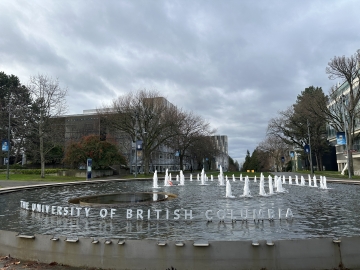Essex University Summer School in WASEDA 2016
Essex University and Waseda University (Center for Empirical Analysis of Political Economy, Top Global University project) will co-organize Essex University Summer School at Waseda University this summer. Essex University will offer a two-week course, “Maximum Likelihood”, from July 25 to August 5 in 2016. The course is designed for graduate students who have already learned intermediate statistics and regression analysis. The course is open for any graduate students (i.e., open to any university and any department) although the number of seats is limited (up to 20 students). The course will be taught in English. Upon the completion of the course, Essex University will issue their formal certification. Thus, it may be possible to transfer this course’s credits (2 credits) to your university’s credits. Please ask your department and university to check whether the credits can be transferred. Only in 2016, the course fee will be covered by Waseda University.
How to apply?
The tuition fee will be covered by Waseda University (only in 2016).
We will accept up to 20 students.
You have to submit an application form. Please go to the following link and fill out the application form. If we receive more than 20 applications, we might conduct a screening.
(When the above link does not work, please directly copy the following address.)
Application Deadline: July 05 (Tue).
We will inform you the result of your application via e-mail within three days after the deadline.
Course Title: Maximum Likelihood
Instructor: Daina Chiba (Essex University, Lecturer)
Language: English
Course Contents:
In this course, students will learn how to build a statistical model to explain the variation of a categorical (binary, ordinal, nominal) dependent variable. They will learn how to build statistical models by properly specifying a likelihood function appropriate to their theory and data. They will then learn how to estimate the unknown parameters of these models using maximum likelihood estimation and how to produce measures of uncertainty (standard errors). Next, they will learn how to use the estimates of the parameters of the model to interpret its substantive implications — mainly by calculating substantive effects of the form “my estimates suggest an additional year of education would increase an individual’s chance of turning out to vote by 3%.” Finally, students will learn how to use simulation techniques to put confidence intervals around these substantive effects, of the form “my estimates suggest an additional year of education would increase an individual’s chance of turning out to vote by 3%, plus or minus 1%.” Throughout the course there will be an emphasis on how to best describe and explain the models they build and how best to communicate substantive implications to a broad academic audience.
The foundation of building a statistical model is proper development of a likelihood function and that requires an understanding of probability distributions. Thus, we will start with a brief introduction to probability theory at a level appropriate for students with no background in probability theory. The specific models we will subsequently cover are the Bernoulli-logistic model (logit), the normal-linear model (regression), ordered logit, multinomial logit, and event count models (e.g., Poisson, negative binomial).
Course Website:
http://essexsummerschool.com/summer-school-facts/courses/complete-2016-course-list/1h/
Place: Waseda University, Waseda Campus, Building 3, 9th floor, Rm. 902.
Course Schedule:July 25 (Mon)-August 05(Fri). 15 lectures (90 minutes per lecture).
Lecture Time:
– July 25, 26, 28; August 1, 3: Lecture (10:40-12:10), Lecture (13:00-14:30)
– July 27, 29; August 2, 4, 5: Lecture (10:40-12:10), Office Hour(13:00-15:00)
Notes:
Please make sure that the lecture time will not conflict with your regular courses. If there is any time conflict, it will be your responsibility to obtain a permission to attend this course from the instructor of your regular courses and your supervisor.
Contact Information:
Waseda University
Center for Empirical Analysis of Political Economy
Top Global University project
E-mail: [email protected]
Tel:03-3208-0347
Organizers:Aiji Tanaka (Political Science), Satoru Shimokawa (Economic).








